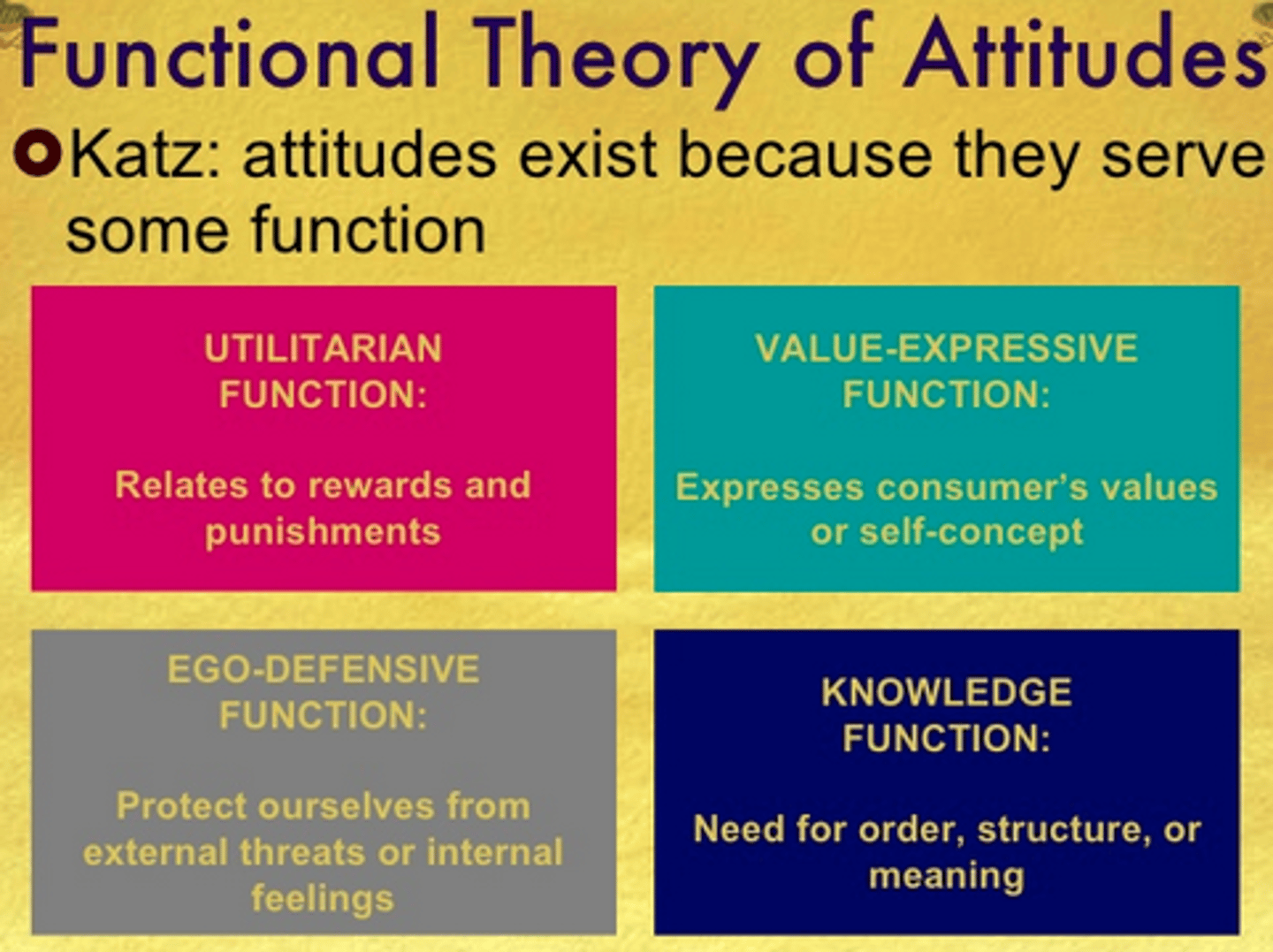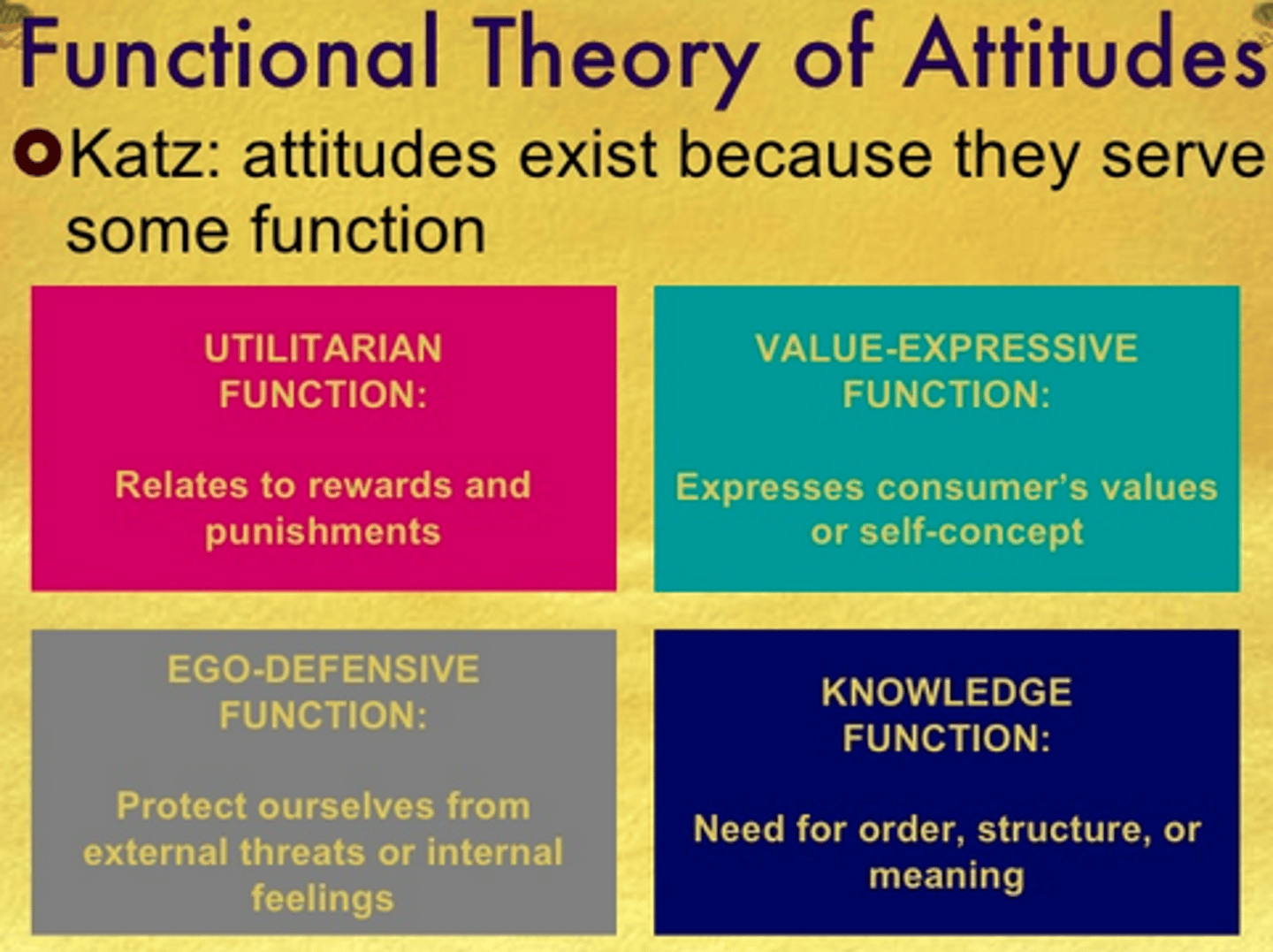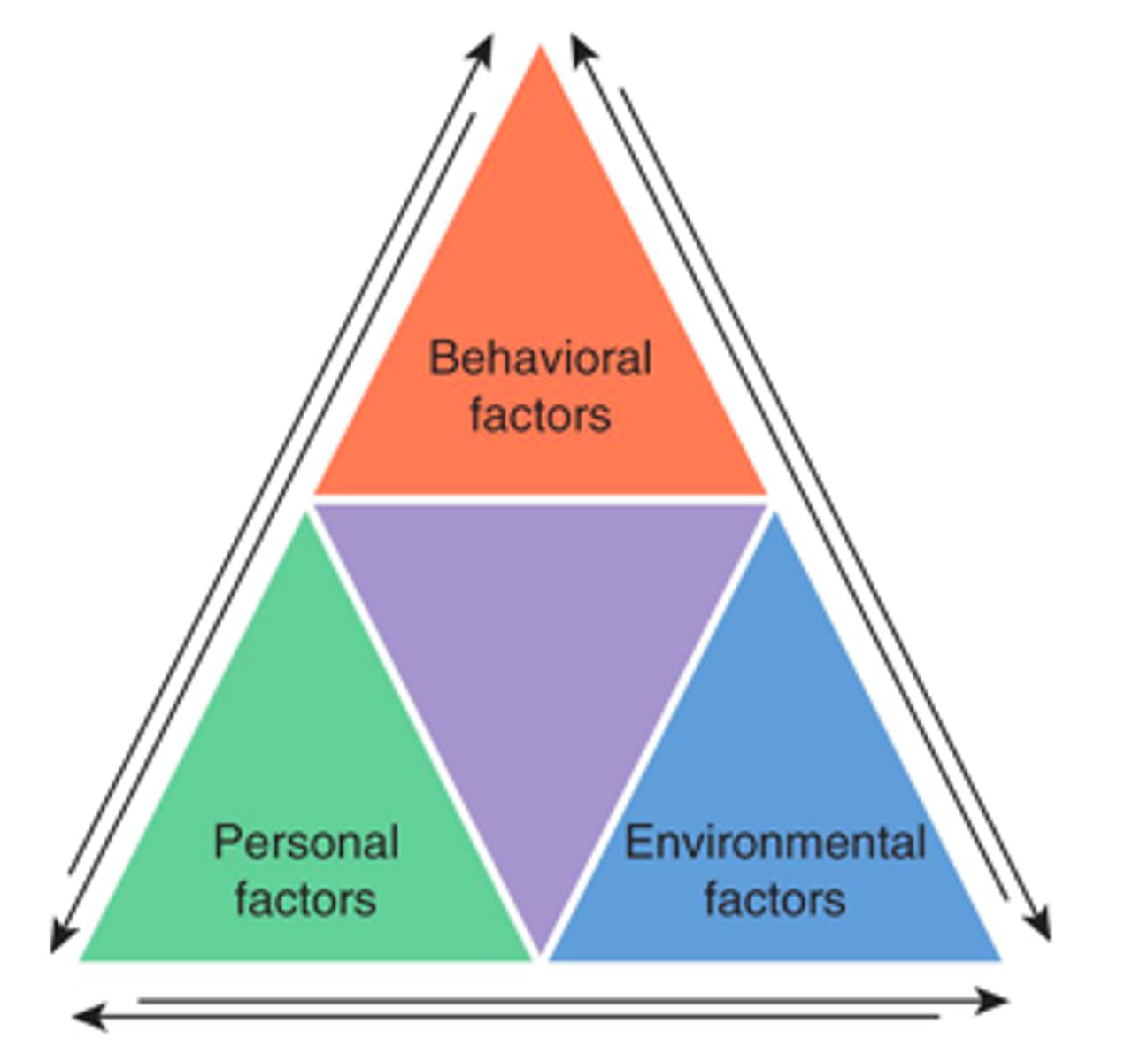8.3 Attitudes and Behavior
1/17
There's no tags or description
Looks like no tags are added yet.
Name | Mastery | Learn | Test | Matching | Spaced |
|---|
No study sessions yet.
18 Terms
Affective, Behavioral, Cognitive
Three primary components of attitude.
Attitude
The expression of positive or negative feelings toward a person, thing, or scenario.
Affective
A primary component of an attitude that refers to the way a person feels toward something, it is the emotional component of attitude.
Behavioral
A primary component of attitude that refers to the way a person acts toward something.
Cognitive
A primary component of an attitude that is the way an individual thinks about something.
Functional Attitude Theory
Suggests that beliefs and attitudes are influential to various psychological functions.

Knowledge, Ego-Expressive, Adaptive, Ego-Defensive
Functions of attitudes in functional attitude theory.

Knowledge
Attitude function that is important in that it provides consistency and stability.
Ego-Expressive
Attitude function that allows us to communicate and solidify our self-identity.
Adaptive
Attitude function which is the idea that one will be accepted if they express socially acceptable attitudes.
Ego-Defense
Describes our attitudes if they protect our self-esteem or justify actions that we know are wrong.
Learning Theory
States that attitudes are developed through different forms of learning.
Elaboration Likelihood Model
Separates individuals on a continuum based on their processing of persuasive information.
Central Route Processing
Those who elaborate extensively and think deeply about information, scrutinize its meaning and make decisions based on analysis.
Peripheral Route Processing
Those who do not elaborate, focusing on superficial details.
Social Cognitive Theory
Postulates that people learn how to behave and shape attitudes based on observing others. It relies on three factors.
Behavioral Factors, Personal Factors, Environmental Factors
The three factors of social cognitive theory.
Bandura's Triadic Reciprocal Causation
Demonstrates how the three factors of social cognitive theory influence one another.
